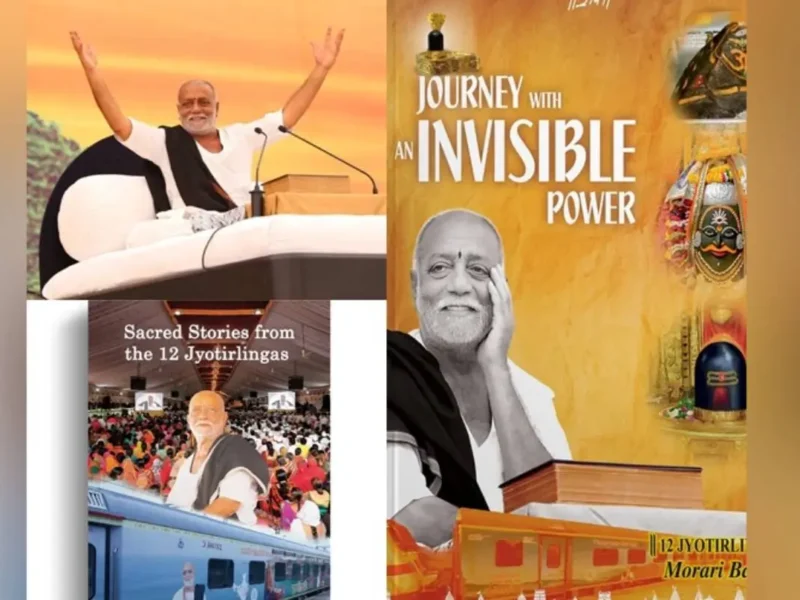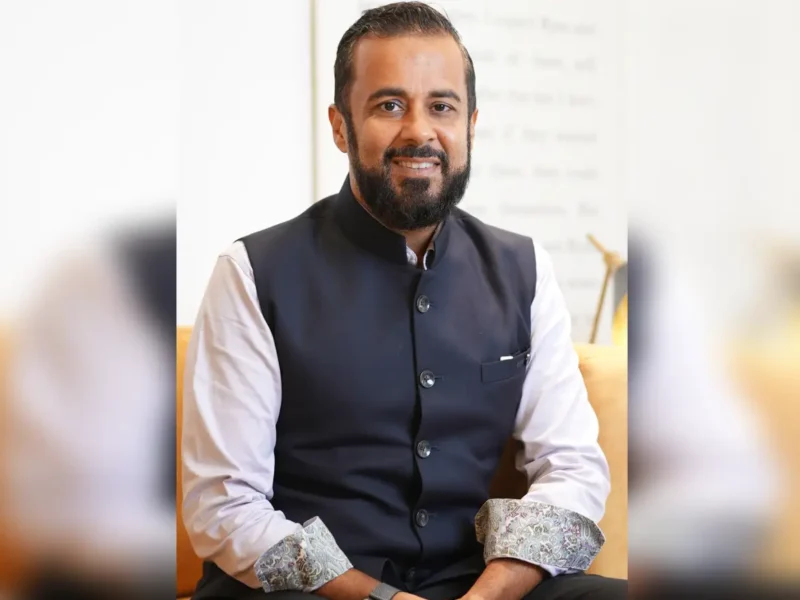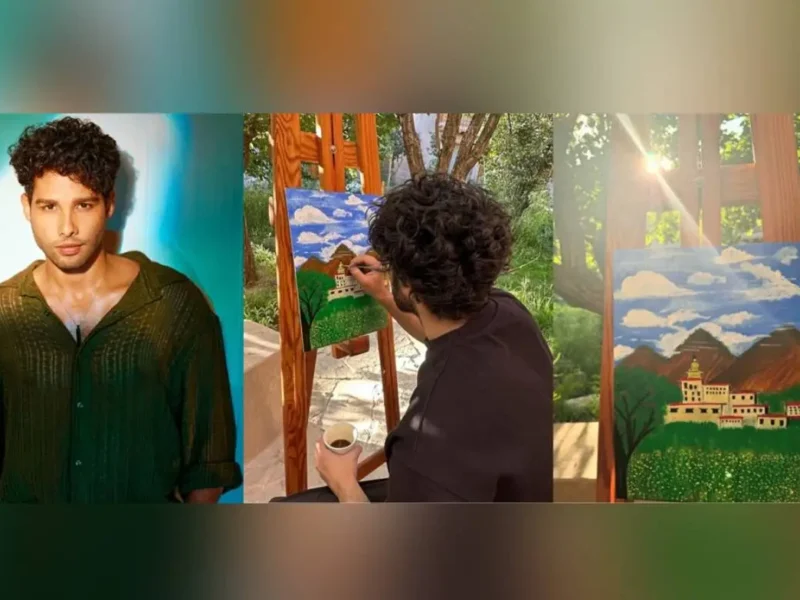
Mumbai Cop Tells His Story of Gangs and Bollywood
By VISHNU MAKHIJANI
Industry stalwarts such as Ramesh Sippy, Mahesh Bhatt, and Manmohan Shetty, who “firmly stood their ground and refused to be cowed”, were the real heroes who took on the underworld, according to former Mumbai Police Commissioner Rakesh Maria, who previously headed the city’s ‘Bollywood Crescent’, the Northwest Region, which was the ground zero of the extortion menace at its peak.
Prior to this, as Assistant Inspector General (Law and Order, and Crime) at the Mumbai Police Headquarters, Maria says he had been tipped off that Dubai don Abu Salem had ordered a hit on Gulshan Kumar, who had upset the applecart of the established players with his T-Series of audio cassettes.
Security was provided, but there was laxity when the Mumbai Police were replaced by their UP Police counterparts — Gulshan Kumar’s cassette factory was in Noida on the outskirts of the national capital, which may have been the reason why the UP Police was brought in — and their complacency led to the music baron being gunned down on August 12, 1997.
“People in the entertainment or real estate industry were simply not mentally prepared or psychologically equipped to deal with threats to their lives or the lives of their kith and kin,” Maria writes in his autobiography, “Let Me Say It Now.”
“In all fairness, the truth and reality were that the late Yash Chopra, Ramesh Sippy, Mahesh Sippy, Mahesh Bhatt, Vidhu Vinod Chopra, Manmohan Shetty and others firmly stood their ground and refused to be cowed,” Maria adds. “They proved to be the real ‘reel’ heroes, leading the way to show the film industry how to take on the organized crime syndicates.”
With the concerted action on the part of the sectional police and the Crime Branch, “the tide began turning” and despite the adverse findings of a judicial commission into a rash of encounter killings, “we managed to tighten the noose on the gang activities”.
The real war, Maria points out, “had just begun and though under severe and perpetual stress, I was enjoying the hard-earned success.” The police officer, incidentally, is no stranger to Bollywood — it hadn’t earned the sobriquet then — as his father, whose screen name was Vijay Maria was closely involved as a musician and assistant to Kidar Sharma, the “master of the art of film-making” in the late 1950s and early 1960s.
The elder Maria’s residence was, in fact, the frequent venue of musical soirees and discussions on literature, poetry et al “over good food and drink” and was attended by the likes of Roshan, Shailendra, Raja Mehdi Ali Khan, Lekh Tandon, Rajendra Kumar, Bhappi Soni, O.P. Ralhan, Shetty, Ram Maheshwari, “and many more”.
Sometimes, writes Maria of his ‘Bollywood Crescent’ tenure, “one got the feeling that the underworld enjoyed playing cat and mouse with the films. They enjoyed the kick they got out of calling the shots to make the ‘Bollywood Badshahs’ bow to their bidding and dance to their tunes”.
The dons would force producers to cast actors and actresses of their choice. “They would intimidate the producers to sell the worldwide distribution rights … to their fronts or cronies as Bollywood films had now become a lucrative business in overseas markets. They would command the presence of actresses and models in their boudoirs in overseas locations and make actors give performances at their birthday bashes,” Maria writes.
He cites the killing of Javed Riaz Siddiqui, “a small-time producer trying to climb a notch up”, who had announced a film with Mithun Chakraborty, Vinod Khanna, and Raj Babbar and on whom Abu Salem had exerted pressure to cast Pakistani actress Anita Ayub as the leading lady and who had also been paid a signing amount of Rs 1 lakh.
Siddiqui soon realized that it was not commercially viable to cast Ayub “as she added no value to the project” and he began scouting for a “saleable” leading lady and even tried to return the signing amount. This “infuriated” Salem and the “incensed” don threatened Siddiqui with “dire consequences”.
Go to a bigger production house, Siddiqui pleaded, but Salem “would brook no questioning of his fireman (edict)” and on June 7, 1994, the producer “was shot dead in broad daylight on a busy street in full view of his hapless wife”, Maria writes.
Not only were property, financial and civil disputes being settled by the underworld, “but Dawood Ibrahim’s hegemony was also such that Bollywood squabbles and dissonance were being taken to his ‘court’ for ‘justice’,” Maria writes.
“There was a disagreement between two production houses as regards the date of release of their films. Producers are cagey and superstitions about the date of release of their films. Also, if the weekend of the release was followed by a holiday on Jun 13, it would ensure bumper box-office collections.
“Further, two big-budget films releasing on the same day would surely entail a financial debacle. So, this dispute between the two well-known film moguls was decided in Dubai by Dawood Ibrahim. Once the decision was made, it was binding on all concerned and there was no court of appeal,” Maria writes.
On another occasion, a top Bollywood hero had gone to Dubai to perform on Dawood’s birthday.
“After his return to Mumbai, one day he was whisked away at gunpoint from Film City by the Arun Gawli gang and brought to (his) Dagdi Chawl (den) at Saat Rasta in the neighborhood of the Arthur Road Jail, Mumbai’s Central Prison.
“Gawli’s ostentatious Navaratri celebrations were on, and the hero was made to dance for the benefit of the revelers! This was one-upmanship or assertion of dominance that was a regular feature in the underworld of the eighties and nineties,” Maria writes.
He also recalls the visit to his office of “a very senior and respected producer-director” accompanied by a woman in burqa who had been receiving threatening calls from Dawood’s brother Anees Ibrahim. He was demanding she come to Dubai — not to pay hush money, but because “he wants to sleep with me”.
The woman, “a respected name in the entertainment world”, had even contemplated suicide and confided in the producer-director, who brought her to Maria for help.
“But if you register any complaint, Mr. Maria, I will not be able to sustain it. I am sinking deeper into depression day by day. I can think of nothing but suicide. I would rather die than go into his hands,” the woman pleaded.
“We provided protection to the defenseless victim for months on end, maintaining strict confidentiality. Luckily, it worked. She gathered the courage to face the ordeal. Ultimately, with our help and support, she could withstand the pressure to survive without compromising her pride and honor,” Maria writes, adding that the success, when it came, was one of several such stories that the police had to keep mum about.
It was evident that the underworld “had their tentacles already spread and embedded deep in Bollywood” when Maria assumed charge of the Northwest Region “and they knew exactly how to hit the producers, directors and actors where it would hurt them the most,” the officer writes.
He had to be in constant touch with most of the film industry stalwarts and even small-time producers and starlets to boost their confidence and provide protection.
“Do not give in to their demands. We will stand with you and provide protection. This was my ceaseless plea to all those who were subjected to extortion calls and intimidation,” Maria writes, admitting that this was easier said than done, but slowly, the turnaround happened.
in September that year and a Congress-NCP alliance came to power. A fight had erupted one day at a restaurant in Bandra. The owner wanted to lodge a complaint, the deputy Chief minister (he is not named) tried to nix it, but Maria stood his ground, and it was curtains for him.
On the Gulshan Kumar killing, Maria writes that he received an “unforgettably chilling call” in the early hours of April 22, 1997, that the music baron’s “wicket girne wala hai” — that Abu Salem had ordered his elimination when he visited a Shiva temple as was his wont every morning whenever he was in Mumbai.
The Mumbai Police threw a security cover around Gulshan Kumar, but thereafter, a contingent of UP Police commandos began protecting him.
“The protection provided by the Mumbai police was therefore withdrawn. Somewhere down the line, routine and apathy could have set in, as it often happens in prolonged watch and ward duties. The guard is lowered and when you least expect it, the enemy takes his chance.
“After months of alertness and vigil, the mind starts inferring or deducing that the danger has passed. This is what happened with the security detail with Gulshan Kumar. Both the protectors and the protected relaxed.
“Their sloth and complacency were punished by the patient underworld biding its time phlegmatically. Gulshan Kumar was shot down just the way his enemies had planned, at the temple he visited daily, without fail, when in Mumbai,” Maria writes.




